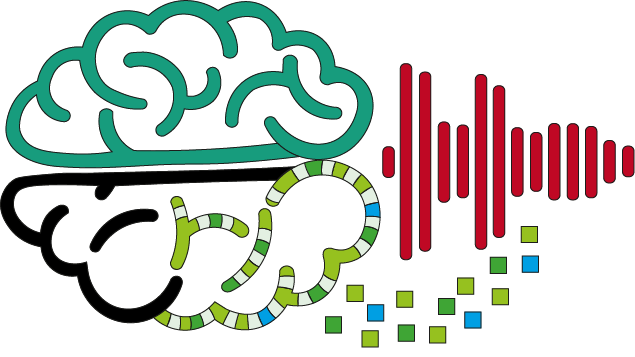NAKO+ILSE
Multimodal data fusion for early dementia detection
Looking for students!
We are currently conducting, recording and automatically analyzing interviews of about 500 participants, aged 60 years and older.
If you're good with (elderly) people, interested in conducting interviews, language is your thing and you would like to earn money along the way – get in touch with us.
You must be fluent in German.
moreIn our aging society, geriatric diseases, such as dementia are becoming increasingly common. Alzheimer's disease, the most common type of dementia, is a chronic neurodegenerative disease which is characterized by progressively declining cognitive capacities to the point of dependency in all areas of daily life.
Alzheimer's cannot be cured, however with early treatment its progression can be decelerated substantially. Therefore it is vital to detect dementia already in its prodromoal stage before obvious symptoms occur. State-of-the-art diagnostics, however, are complex and time-consuming, and typically identify affected people once brain degeneration has progressed considerably.
Therefore in NAKO+ILSE we aim to develop novel methods for early detection of dementia. To achieve this, with our project partner Fraunhofer MEVIS we are working towards fusing data from two large scale epidemiological studies:
- NAKO (German National Cohort) is a longitudinal study all over Germany aiming at enabling research into common diseases, and
- ILSE, the "Interdisciplinary Longitudinal Study on Adult Development and Aging", has been following the social and health development of people from their working age to retirement for roughly 20 years.
With NAKO+ILSE we will develop suitable tools and methods for automatically fusing such studies' data. In order to be able to apply these, we are currently conducting a study to acquire data with methods of both studies from a subpopulation of the participants.
Based on the merged data we want to analyze whether including multiple modalities in algorithms can improve early detection of dementia. Building on our longstanding research on (early) detection of dementia grounded solely on ILSE's speech data (see ALMED), we would now like to incorporate magnetic resonance imaging (MRI), which can provide us with a more direct view of the brain. We will examine which fusion method optimizes early detection and how far into the future cognitive and brain aging effects of dementia can be predicted.
The outcomes we envision for NAKO+ILSE will also benefit reasearch outside our lab: on the one hand we will contribute to data fusion research with the tools and methods we will develop, on the other hand with the fused comprehensive health database we will enable more intensive research into not only neurodegenerative but also other common diseases like cancer and diabetes.
Funding: U Bremen Research Alliance (2021–2024)
Staff at CSL
- PI: Prof. Dr.-Ing. Tanja Schultz
- Contact & project work: Elisa Brauße, M.Sc.
Staff at Fraunhofer MEVIS
- Prof. Dr. Matthias Günther
- Dr. Jochen Hirsch
- Amnah Mahroo
- Mareike Buck
- Christiane Engel
- Volker Diehl
Associated Patners
- Prof. Dr. Johannes Schröder, Universität Heidelberg
- Prof. Dr. Wolfgang Ahrens, BIPS
- Prof. Dr. Iris Pigeot, BIPS



